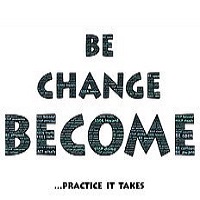
Over the last few weeks, the response of parishioners to the Pastor’s Desk has been great.
As you can imagine, not everyone agrees with me—which makes me very happy!
Each correspondent has offered me new insights into the experience of change, the notion of being a stranger, the desire to be communicated with, the notion of being “trans”, and the question regarding the current state of the New Zealand Church’s intellectual life.
The feedback has come via email, texts, and conversations.
Parishioner’s Words
One parishioner wrote:
‘Being a group of parishioners in transition is a new concept for me because “parish-in-transition” feels like an external thing or experience (the parish is not me). Being a parishioner-in-transition or a believing-person-in-transition is a more confronting idea. I’m the one who is or is not changing.’
Another parishioner emailed:
‘The idea of being a stranger’, of ‘honouring communications’ and ‘having the chance to pull ideas apart’ is really important for the life of the parish, as is understanding the nature and meaning of Pentecost.’
A parishioner emailed me the following:
‘Good evening, Fr. Joe! I was inspired to write to you after reading your “Pastor’s Desk” in the latest issue of Kotahi Ano. You are absolutely correct when you wrote “The Church is not a club or a clique of friends….”.
Being a foreigner in this land, sadly that’s how I felt when I first started going to Mass at the Cathedral.
This March 23 it’s been 1 year since I came to Palmy and my fourth year in NZ. My family is not with me here and I am very lonely without them. I miss them the most when taking part in Holy Mass because we always went together as a family.
Back home where I come from, my parish is my second home so the painful process of trying to belong was a spiritual struggle in itself. But God’s mercy and grace kept me moving. I needed HIS constant presence so that I could keep moving without stopping, so the “Tabernacle room” (I don’t know whether that’s the correct name) at the Cathedral became my refuge.
Since I depend on public transport, being able to walk to the Cathedral from my place of accommodation was a big blessing. The closure of the Cathedral due to the fire incident was a shocker for me and I felt myself back to square one. As the scripture says “For my thoughts are not your thoughts, neither are your ways my ways, declares the Lord. As the heavens are higher than the earth, so are my ways higher than your ways and my thoughts than your thoughts.” (Isaiah, 55: 8-9)
Coming to OLOL for Holy Mass opened a new door in my life, maybe one day I can share all about it with you in person Fr. Joe.
Change is inevitable, and adapting to change will prevent us from becoming stagnant. Our Apostolic church would have been stagnant if not for the Holy Spirit moving in and through Her.
As we prepare for the feast of the “Pentecost” the greatest of all, may we thirst for it and wait in prayers with our Blessed Mother, as the apostles did.’
Summary
All the responses have shown that communication is key as we go through the experience of change and experience the call to divest ourselves of ideas and structures that hamper the Spirit.
Change, movement, and transition become real when it is “me” who must change or when the change is “happening to me”.
Personalising change is the key to dealing with change. It is me, not you (the other person or institution) who needs to change; I am the one who needs to discern the nature of that change and the reaction I have to its demands.
Being “communities of welcome” is so important.
Established parishioners are key to this welcome because they know who everyone is, they know the history, and they know the people who can help. New parishioners are key when they ask: “Where can I participate?” Everyone has a role to play!
Seeing the initiative Brunch@St Mary’s in Foxton is an example of two established parishioners taking the lead and offering time to others. Seeing this is so heartening.
Staying in touch with each other is important. It brings out the “stranger” in each of us and lets the “strangers” meet in a place of trust, hope and charity.
For everything to remain the same, there must be change.
For change to be deep and permanent, we must work to stop change from happening.
Fr Joe



